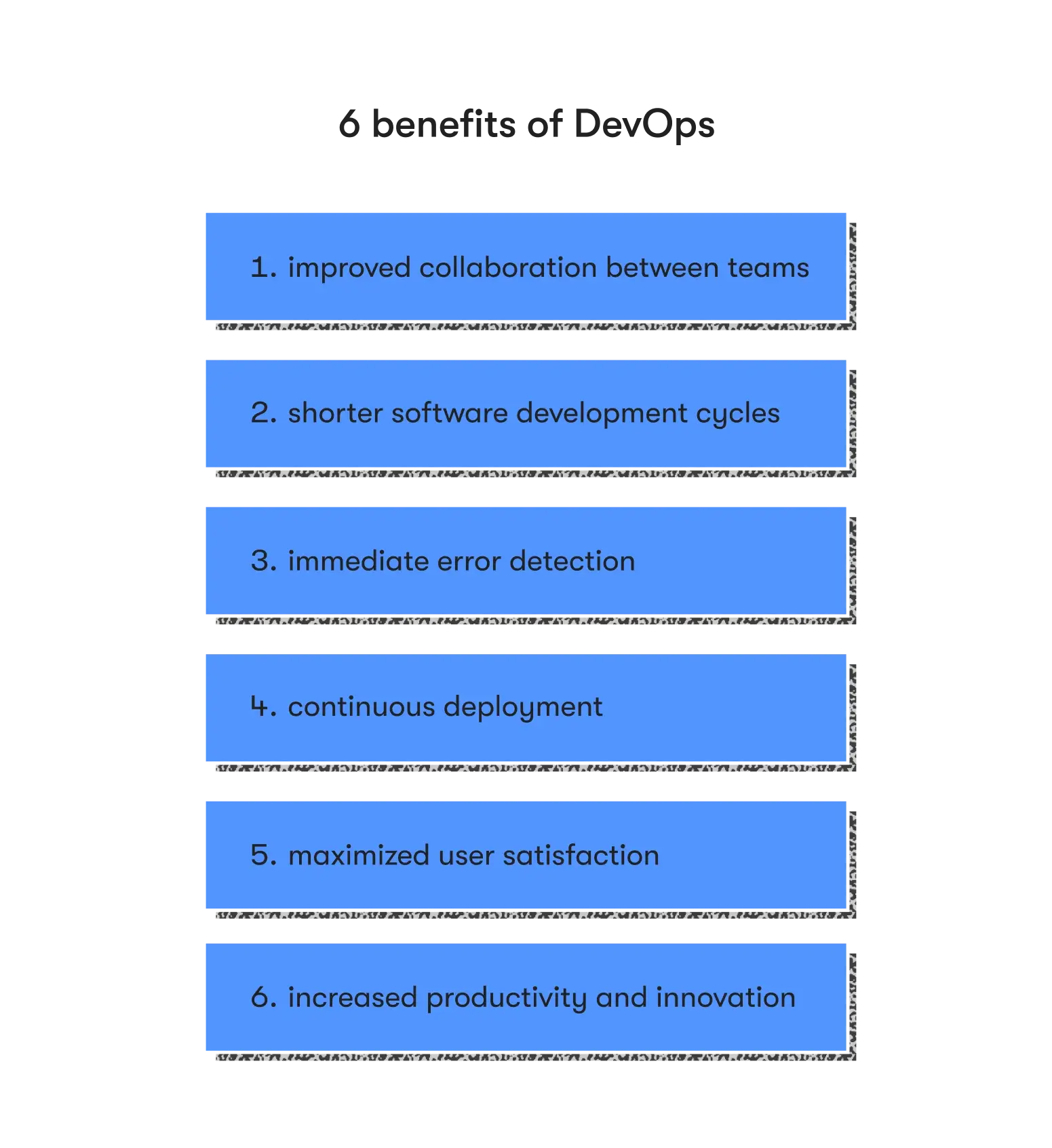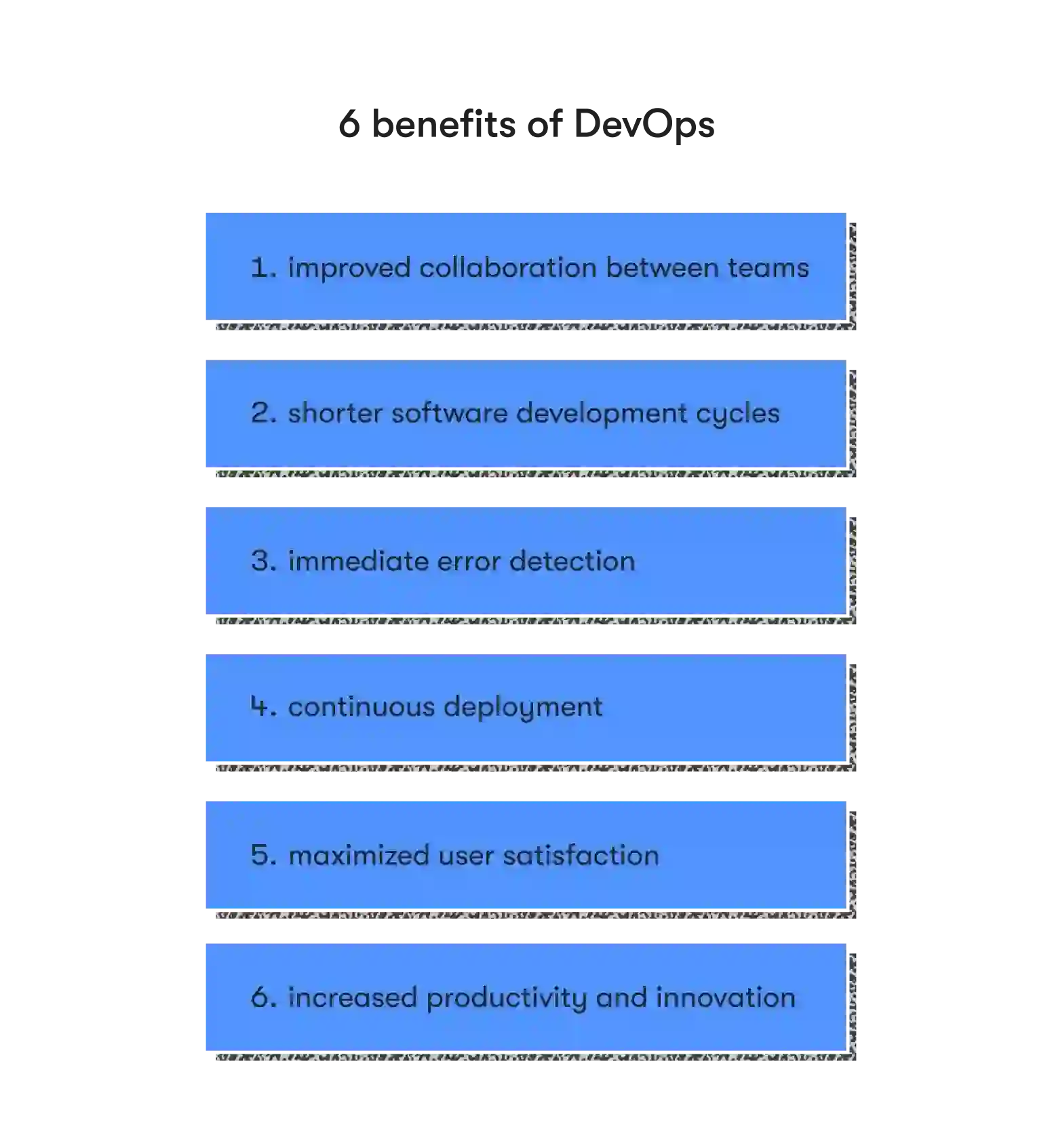In a tech-driven age, the discourse around DevOps software development continues to gain attraction. The fact of the matter is that adopting and embracing DevOps leads to heightened performance, closes competitive gaps, and ensures long-term business success.
Traditionally, development and operations worked as independent modules. DevOps started moving away from conventional siloed teams to boost collaboration in software development. In the DevOps approach, development and operations work in tandem across the project lifecycle. Typically, you can rely on DevOps engineer skills to ensure smooth and effective implementation.
The focus of this article is to shed light on the fundamentals, goals, principles, and benefits of DevOps.
What exactly is DevOps?
DevOps, or development and operations, refer to a dedicated practice that combines quality assurance, operations, and development efforts into a centralized and continuous process.
Once companies adopt DevOps, they can improve their software development's technical, cultural, and business aspects. In terms of popularity, DevOps has become the standard software development methodology for development teams around the world.

DevOps culture and principles
DevOps principles lead to a cultural change in a system and render positive outcomes for the company. They ensure a high degree of transparency and clear communication across all involved teams throughout the software development process.
The DevOps principles target the company’s software development culture.
Ultimately, the key goal of the DevOps methodology is to help teams identify common ground in conflicting goals. But the burden of redefining and reviewing the team’s responsibilities falls on the organization. And part of the process of redefining the responsibilities of the team is instilling motivation.
A thriving DevOps culture means there is transparency, communication, and seamless collaboration across teams. On the other hand, DevOps principles revolve around customer-based actions and having a collaborative environment paired with automation.
DevOps vs. DevSecOps
DevOps represents a culture and unique software development philosophy that involves specific technical practices. DevOps makes it possible to communicate, automate, and integrate across all teams required to develop, test, implement, and maintain a dedicated software solution.
Conversely, DevSecOps involves automated checks of security parameters across different stages of software development. DevSecOps ensures secure software development at agile speed. As the title suggests, the main component of DevSecOps is security. Quality assurance and DevOps teams collaborate to ensure there are no inconsistencies in an app or service.
DevSecOps is an integral step in the development approach. It integrates infrastructure and application security into DevOps and agile processes. DevSecOps highlights key security concerns when they occur and turns infrastructure and application security into a collective responsibility of security, development, and IT teams.
Key DevOps goals explained
Let’s look at the major goals of the DevOps methodology in the context of team collaboration, culture, and technological impact.
To create a robust and scalable infrastructure
DevOps’ main goal is to develop a sustainable infrastructure for specific applications and ensure high scalability. After all, scalable apps are highly reliable, automated, and integral in the modern-day software development process.
To offer prompt feedback
One of the hallmark goals of DevOps is to automate repetitive tasks like reporting and testing to speed up the process and garner prompt feedback. In fact, this rapid feedback gives the development team a clear picture of changes, and then teams can deploy updated versions at lightning speed.
To enable collaboration across teams
One of the main goals of DevOps is to ensure effective and balanced collaboration across teams. Effective collaboration comes down to shared ownership, and part of the development process is to ensure equal responsibilities. From development to testing to deployment, team members get involved and play a central role in the final results.
What is the primary goal of DevOps in SAFe?
When you cut out DevOps from the picture, it creates tension between those who support the solutions and those who build them from the ground up. Objectively, SAFe (Scaled Agile Framework) enterprises deploy DevOps so that they can break down data silos and create a continuous delivery pipeline, which works as an innovative high-performance engine that can deliver top-tier market solutions reasonably fast.
Signs you need DevOps on your project
Accelerated adoption of DevOps services is not a new phenomenon. In fact, data proves that most entities have already implemented DevOps by 2018. Now, DevOps is globally recognized and deployed for unique business purposes.

Here are the most common signs that you should implement DevOps for your project:
- When you perform CI with automated testing on every single check-in
- When your production deployment is automated, and you have to roll back
- When you have regular and fast release cycles
- When you assign excessive resources to automate testing
- When operations engineers, testers, and developers have common goals
- When you’re covering the technical debt
- When company management gives authority to the team to make specific changes
- When you have a systematic feedback system to ensure continuous improvement
Going DevOps: 6 benefits you can expect
By achieving the goal of the DevOps methodology, organizations gain a unique opportunity to bring more value to their customers. Here are some benefits of DevOps that deserve your attention:

Better communication and collaboration between teams
Adopting and embracing DevOps eliminates traditional bottleneck issues between operations and development. And most importantly, DevOps improves overall team interactions. DevOps makes it possible for business and technical teams to collaborate effortlessly. Once a simplified feedback mechanism is in place, the company can drive more growth. You can learn more about this in our guide to Agile trends.
Shorter software development cycles
One of the main benefits of DevOps adoption is agility integration for the company. Once software development cycles shorten, it improves the overall capacity to roll out certain modifications and ensure feedback is addressed.
Remember, a flawless software development cycle accelerates product deployment by quickly fixing bugs and correcting errors. Nonetheless, when it comes to building a unique software product, speed is one of the top priorities to maintain high relevance and a competitive edge in the market.
Immediate error detection
Using DevOps, team members can share extensive data. DevOps makes it easier to continuously test and track code that allows teams to optimize the reliability and quality of the software development process. With DevOps, teams get more wiggle room to share ideas. This approach also helps the team detect and resolve errors in the early development stages.
Continuous deployment
With CI/CD (continuous integration and continuous delivery) of DevOps, you can speed up software delivery. It is a tested approach where the development process triggers faster software development, significantly speeding up production. In addition, companies can also synchronize DevOps activities with key business goals. Speaking of synchronization, you can connect manufacturing cycles with non-technical and technical systems.
In the context of continuous deployment, one of the perks of using DevOps is that it provides embedded automation across the entire development process. With automation, you can achieve faster software development and improve the effectiveness of the system altogether.
Maximized user satisfaction
One of the perks of DevOps is that it ensures that the users experience bug-free software that lives up to their high expectations. Fundamentally, DevOps reduces the number of errors and ensures customer feedback and needs are addressed quickly.
Increased productivity and innovation
Another benefit of DevOps is that it minimizes the workload of all teams. It is the most practical way to make sure individual team members don’t spend time on repetitive tasks. It reduces stress across teams and fosters innovation, leading to increased workforce productivity and satisfaction.
Final thoughts
Implementing best DevOps practices independently or by turning to DevOps outsourcing will allow companies to reap multiple short-term and long-term benefits. But before adopting DevOps, make sure to define your DevOps principles and goals. Think of it as a robust tool to run optimized operations. If you’re aware of your DevOps goals and have a DevOps strategy in place, implement it in a streamlined fashion. It will improve your application delivery process as a whole.

The EPAM Anywhere Editorial Team is an international collective of senior software engineers, managers and communications professionals who create, review and share their insights on technology, career, remote work, and the daily life here at Anywhere.
The EPAM Anywhere Editorial Team is an international collective of senior software engineers, managers and communications professionals who create, review and share their insights on technology, career, remote work, and the daily life here at Anywhere.
Explore our Editorial Policy to learn more about our standards for content creation.
read more




















